For this playlist, we asked Independent writers to pick a song for ringing in the new year. The result was songs across genres — NOLA jazz, Ukrainian folk, early aughts pop, indie rock — that express ambivalence about the year ahead but confidence in our ability to get through it.
Listen along on Spotify at https://tinyurl.com/IndiePlaylists.
‘Hard Times,’ Gillian Welch
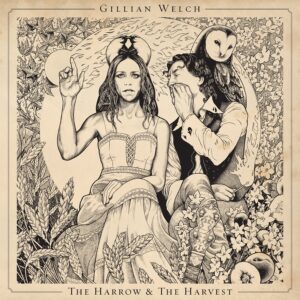
Those newborn phrases like “clean slate,” “new chapter,” and “rebirth” all have something in common: a subtle acknowledgement of the chalky slate, the previous chapter, and the original bloody birth — the hard times that came before. That’s my excuse for putting Gillian Welch’s “Hard Times” on this list.
Over a slyly optimistic plucked guitar, she says, it’s a “mean old world.” True enough — it’s winter. There’s the biting cold and the vicious wind, stubborn blue skies and insidious ice. There’s also mean people, mean injustices, mean lies, and even mean truths.
But, if there’s one thing that’s always kind, it’s music. Welch sings, “Singing, ‘Hard times ain’t gonna rule my mind.’ ” For her, it’s the act of creating music that constitutes a fresh start. And so, she sings this line over and over, first solo in her enchantingly honest voice, then accompanied by warm vocal harmony.
“We all get to heaven in our own sweet time,” sings Welch. Like music, heaven can be anywhere that is better than where you are. For now, I’m happy right here listening to Welch’s enveloping voice settling comfortably on the swayback lines of the folk guitar. —Dorothea Samaha
‘Alone Again Or,’ Calexico
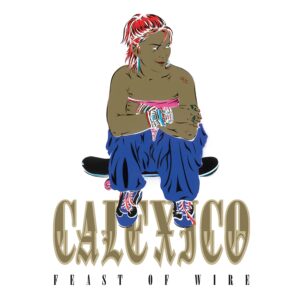
Ever since Spotify robots made the humiliating decision that Kylie Minogue’s “Padam Padam” was my top song of 2023, I’ve been feverishly rectifying what the archive says about my music taste. (“Padam Padam” is an anthem, but one to be played a single-digit number of times.) So, I’m starting fresh with Calexico, the Tucson-based indie rock group whose 2003 album Feast of Wire was reissued this year. Listening to their cover of the band Love’s 1967 “Alone Again Or,” it’s impossible to sit still. John Convertino’s swift snare undergirds Joey Burns’s acoustic strumming and vocals, lovely in their silky grittiness. Trumpets amplify this number, hewing to the band’s mariachi and jazzy cumbia roots. The song is electrifying. It makes me want to run up a hill and into the new year. —Sophie Mann-Shafir
‘Vesna,’ DakhaBrakha
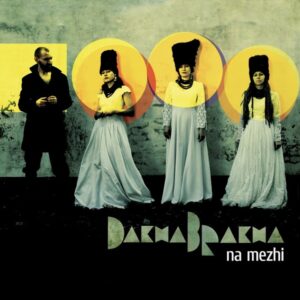
When the Ukrainian quartet DakhaBrakha performed their song “Vesna” at Payomet last summer, the war with Russia suffused their performance: videos of destruction streamed in the background; band member Marko Halanevych spoke of the previous year and a half as a long, cold winter; a visceral mourning propelled the band.
Then “Vesna” (spring) came, the penultimate song in the band’s set. “We believe in our victory, and after our victory, real spring will come,” Halanevych said. The samoshka, an Eastern European accordion, pulsed in his hands. Then came the staccato of the cello, then the brush of the drums. The pulse quickened, and the four singers produced uncanny versions of birdsong.
DakhaBrakha, which means “give/take,” infuses 21st-century rock with Ukrainian folk practices from different ethnic groups.
“Vesna” is a song about renewal: the regeneration of life after winter. DakhaBrakha’s music is the pulse of a future sovereign state. For occupied people across the world currently suffering from a long, cold winter, Vesna is a promise that real spring will come. —Sam Pollak
‘Unwritten,’ Natasha Bedingfield
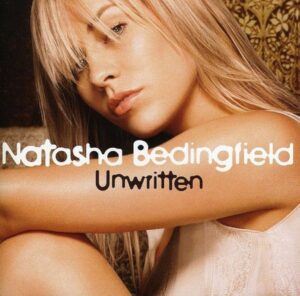
I hadn’t heard this 2004 gem in years when I stumbled upon it on TikTok — sue me! In the short video, a baffled corgi is “serenaded” by a group of lip-synchers. Hunched in bed, my neck at an awkward angle, I watched the joyful scene. Then Bedingfield’s voice worked its magic: I promptly got out of bed and opened my curtains.
If you want to feel like you’re the protagonist in the final scene of a feel-good movie, listen to “Unwritten.” And, in this new year, follow Bedingfield’s instructions: “Open up the dirty window/…Release your inhibitions/ Feel the rain on your skin.” So goes the song’s catchy, motivational chorus. Write on “the blank page before you.” For the protagonist in the final scene, the movie ends, but the story doesn’t. —Eve Samaha
‘She’s a Mystery to Me,’ Roy Orbison
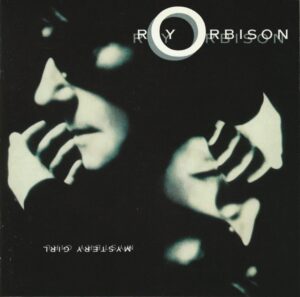
“Darkness falls and she/ Will take me by the hand/ Take me to some twilight land.” A plaintive guitar and a stolid drumbeat give way to that caramel croon. Roy Orbison’s baritone is famously hard to resist.
“She’s a Mystery to Me” was one of Orbison’s last singles before he died of a heart attack in December 1988. Released posthumously in early 1989, the song was written by U2’s The Edge and Bono, the latter claiming the song came to him after listening to the soundtrack of David Lynch’s film Blue Velvet, in which Orbison’s “In Dreams” features prominently. Bono also produced the song, endowing it with his signature ethereal yet driving sound.
Like so many Orbison songs that verge on the operatic, at some point you wonder if the narrator’s object is more than human (angel? ghost? creed?) because Orbison himself sounds more like a prophet or mystic than a heavy-hearted lover. I imagine the “mystery girl” to be like Virgil, leading us into the land of the unseen and unknowable. Perhaps this land is our deep subconscious, a place where we might know our true selves and our potential as human beings.
Or it could be the future, which despite looking dark and troubling at first is not without glimmers of hope and beauty. The year 2024 will undoubtedly be fraught. But this song gives me so much inner strength that I might see “all but love as gray” and, one way or another, go on. — Derek McCormack
‘Freedom,’ Jon Batiste
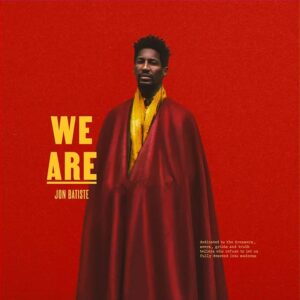
If you’re looking for some joy-inducing music to prepare yourself for the dumpster fire that 2024 may well be, go for Jon Batiste’s 2021 track “Freedom,” a foot-stomping, butt-twerking, street-strutting love letter to New Orleans and to the exuberance that no amount of societal dysfunction can extinguish.
Batiste’s smooth falsetto is everywhere, and his masterful piano skills are on full display, dancing around the melody like a caffeinated cat on a hot tin roof. Horns, a gospel choir, the legendary St. Augustine High School marching band, and kids drumming on buckets combine in a crescendo of jazz, soul, gospel, and funk. “It’s freedom,” croons Batiste.
If any place knows dysfunction, it’s NOLA, whose mere mention elicits images of hurricanes. But New Orleanians don’t get bogged down by practicalities. Instead, we make music on street corners and hop into second-line parades: the explosions of movement and music that “Freedom” captures so well. The song distills NOLA’s joy, just the thing to steel ourselves — wherever we are — for 2024. —Edouard Fontenot



